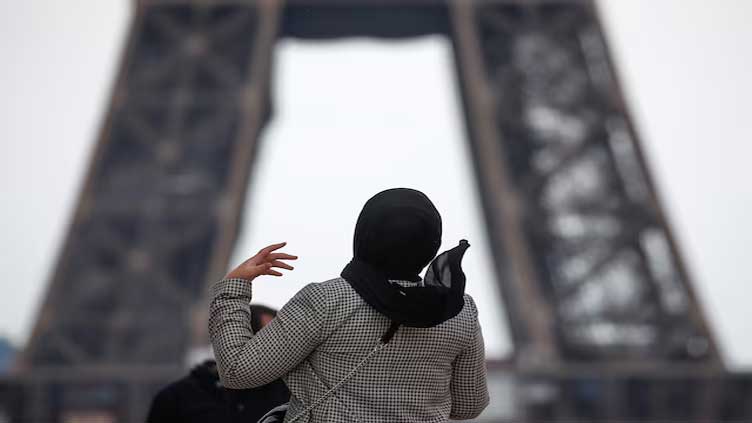Journalist challenges rule banning hijab

World
Journalist challenges rule banning hijab
PARIS (Reuters) - A Paris-based Moroccan journalist who wears the hijab said on Friday she was appealing against a rule that bans women from covering their heads in photos on the French press ID card.
Manal Fkihi said her application for a press card had been turned down, making it difficult to work.
"It is important to accept us as we are," the 25-year-old told Reuters. The appeal "is a first step to combat the marginalisation of veiled women in the profession".
Fkihi said her application was turned down by the CCIJP press card commission, which says ID photos must meet the same standard as passports.
France forbids head coverings in passport photos, unlike Britain where they are permitted for religious reasons.
The CCIJP said that, while independent, it carries out its tasks for the state and so it follows the same standards as official documents. It said sticking to the passport format is better for security.
Fkihi will appeal to the CCIJP, arguing that its rule is discriminatory and that a press card is a professional card, not a form of ID, her lawyer Slim Ben Achour said. If that fails, she will go to the administrative court.
France - with one of Europe's largest Muslim minorities - enforces laws to protect the principle of secularism which President Emmanuel Macron says is under threat from "Islamist separatism".
Renovations are underway at this jail in eastern Kosovo to bring it up to Danish standards as it prepares to house 300 inmates from Denmark in a move criticized by human rights groups.
Some rights groups say those laws have targeted Muslims.
State employees and school pupils are banned from wearing religious symbols and clothing in France.
There is no national legislation covering non-state workers but some organisations, such as the National Bar Association and media groups Radio France and France Media Monde, have created their own rules.
Fkihi says she was once offered a television journalism job provided she did not wear her headscarf.
"What is crazy is that it was for an Arabic-speaking post. They want our skills but without our identities," she said.


